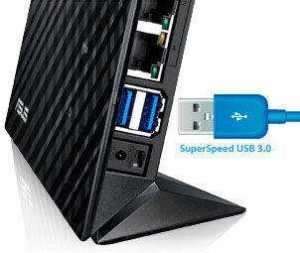Data on thousands of hard drives connected to its router Asus are easily accessible from the Internet due to unsafe default settings, according to tests conducted by PC World Norway specialists.
Broadband Routers με USB θύρες που επιτρέπουν στους χρήστες να συνδέσουν εξωτερικούς σκληρούς δίσκους απευθείας με τον router γίνονται όλο και πιο διαδεδομένοι. Ο κοινόχρηστος space which is accessible over the internet using protocols such as FTP, is quite useful but has significant security risks.
If the products are not set up correctly, the personal ones data they are exposed to anyone with basic technical knowledge. Several incidents have already been reported with people using its router Asus.
The problem starts with how the routers are configured. Access to an external hard drive, which is connected via USB to a router using FTP, can be turned on manually or using the wizard. In both cases, however, they leave the router exposed.
The wizard lets the user choose between 3 settings, the default unlimited access with options for permissions, limited access and admin permissions, with little information on what each one means. Also, restricted access rights include choice which creates a user with name 'family' and suggests the family code instead of asking each user to create their own code.
This problem affects users all over the world, including users in the US. The strange thing is that these routers passed all the security tests used by Asus without any problems.
To solve the problem the company develops a firmware update which will be distributed worldwide thus making the security settings clearer.
We thank her warmly SecTeam @Walkin.





